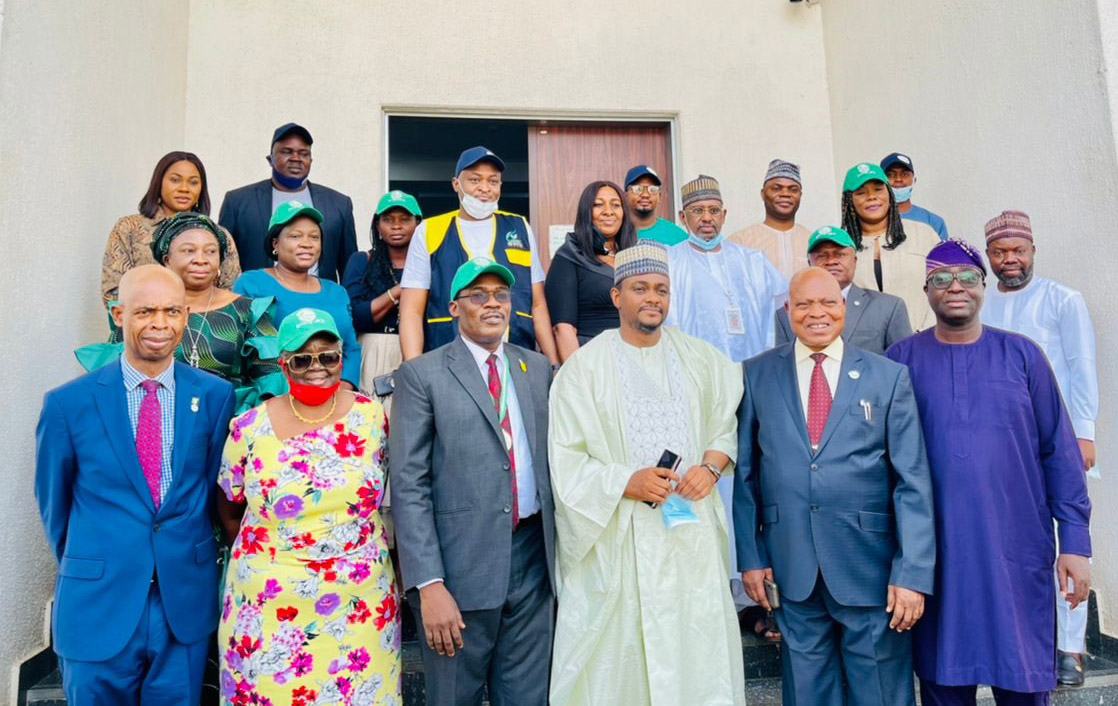Business
FG Plans More Taxes To Reduce Debt Burden

The collection of more taxes and effective blocking of revenue leakages remained the best measures that would drastically cut external borrowing and reduce the high debt burden of Nigeria, the Federal Government said, yesterday.
The government, however, said the debt burden was not beyond what it could effectively handle.
The Minister of Finance, Budget and National Planning, Zainab Ahmed, represented by the Director (Technical Services), Fatima Hayatu, canvassed these views at a workshop on tax expenditure organised by the Economic Community of West African States Commission under the context of the Implementation of the Support Programme for Tax Transition in West Africa in Abuja.
The event was aimed at examining directives on harmonisation of tax expenditure management practices and the monitoring and evaluation of tax transition in ECOWAS member-states.
The minister said the issue of tax expenditure was of a great concern for the government.
The government had in July said the country’s debt service cost in the first quarter (Q1) 2022 was N1.94trillion, N310billion higher than the actual revenue received during the period indicating that Nigeria’s debt service cost presently outweighs its revenue.
Ahmed said, “If we have more taxes and redirect the taxes to the right fiscal sectors of our economy, we will reduce our debt burden. It is not as if the debt is beyond what the government can handle. If you look at the ratio of the debt to the Gross Domestic Product, I think the government is doing well.
“The debt is not something that cannot surmounted. The programme is to block leakages where the taxes are being diverted. So, if we block leakages, and if it is transparent, Nigeria will borrow less and we will have more money to finance other sectors.”
While informing that reforms in tax expenditure management were gaining traction in Nigeria, she observed that the development had resulted in the continuous development of in-house capabilities and internal restructuring in agencies for greater efficiency.
Ahmed also said that government would commence the rationalisation of tax exemptions by phasing out antiquated pioneers and other tax incentives for matured industries.
According to her, contrary to what was obtained in the past, the country is presently reaping the benefits of tax exemptions and concessions given to small businesses.
She said, “A lot has changed, the system is more transparent and tax expenditure that government has given which is tax for bond is to encourage ailing and infant industries to be able to do more and employ more youth.
“I am glad to say that the tax expenditure that federal government has been given has encouraged industries and manufacturers to stay afloat even with the COVID-19 pandemic and also to say that they have been able to keep their staff. That, to us, is an achievement because we don’t want people to loose their jobs which would reduce the insecurity we are facing.”
Ahmed said Nigeria was committed to strengthening transparency in its public financial management towards the drive to boost domestic resource mobilisation.
The Head (Corporations), European Union for Nigeria and ECOWAS, Cecile Tassin-Pelzer, lamented the ratio of tax to GDP in the West African region, describing it as low.
While stressing the need for ECOWAS member-states to effectively mobilise more taxes to offset the potential decline in revenues, she observed that domestic revenue is an important source of government expenditure funding, but revenue mobilisation remains a critical challenge in the region.
Tassin-Pelzer said, “The global economic challenges resulting from the COVID-19 pandemic and the invasion of Ukraine by Russia have affected economic opportunities of countries and individuals. West Africa is no exception. In fact, one can argue that the impacts of these challenges are felt even higher in this region than in so many others.
“Efficient management of internal taxation for improved revenue generation cannot be over emphasized. As we all know, the tax to GDP ratio in this region is too low and, and our host country, Nigeria, is one of the lowest in the world. Therefore, it is important for the region to get the tools required for a proper monitoring and evaluation of the taxes.”
The Director (Customs Union and Taxation), SalifouTiemtore, called on the Federal Inland Revenue Service to deploy adequate resources for collection of more tax than the custom administration in order to mitigate the loss of revenue due to stain of liberalisation of the region’s economy.
He said the PATF programme would strengthen regional fight against fraud, tax evasion, Illicit Financial Flows and other forms of corruption.
Tiemtore said, “We need to know what government is paying as incentives or any type of exemptions they are giving to investors. If assess and quantified properly, it will give us an idea what government could get as revenue if such activities are not exempted from tax.
“We are also looking at fiscal transition. In the world right now because we are dismantling custom tariff and also looking at the liberalisation of our economy. What this means is that we are dismantling custom tariff which automatically means a loss of revenue from custom tax. We need to strengthen our domestic tax administration so that we will able to collect more money. FIRS, therefore, have to collect more tax than the custom administration to mitigate the loss of revenue due to stain of liberalisation of our economy.”

